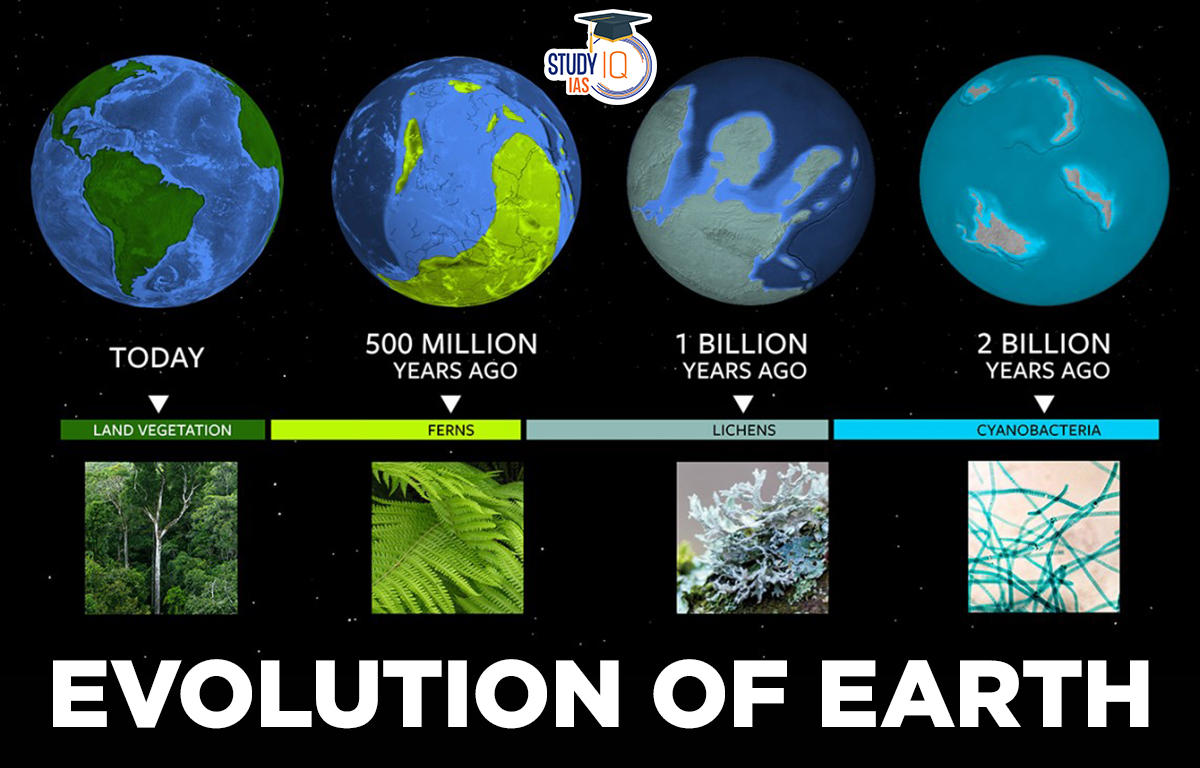A Journey Through Earth's Epic History: From Cosmic Birth to Climate Crisis
💥Over the course of several billion years, our planet, Earth, has embarked on a remarkable odyssey through the cosmos. It has withstood monumental challenges, supported a myriad of life forms, and forged its path against incredible odds. From its inception 4.5 billion years ago to the contemporary trials of climate change, the history of our blue planet is a sweeping narrative of tenacity and adjustment.
To view the Earth and other planets in the solar system , milky way galaxy in the universe 🠞🢒🢒🢒Click here
☝☝☝☝☝☝☝☝☝☝☝☝☝☝☝☝☝☝
Planet Earth Through the Ages
💥The Earth we are familiar with today is not how it has always been. The myriad of life forms that have risen and faded over billions of years depict the many faces of Earth throughout its history. At times, Earth was a molten, lava-covered sphere with a toxic atmosphere. It transformed into an aquatic world with the initial stirrings of microbial existence, then transitioned into a tropical realm bustling with colossal dinosaurs. It has also experienced phases as an ice-covered expanse, where early humans lived in caves and hunted mammoths.
Doug Hudgins, program scientist for NASA's Exoplanet Exploration Program, notes, "We often refer to Earth-like planets as planets similar to what we have today, but our planet has undergone dramatic changes in the past." Earth's history is a story of ever-changing environments and life forms.4.5 BILLION YEARS AGO: The Cosmic Dawn
Approximately 4.5 billion years ago, our Solar System emerged from a dense cloud of interstellar gas and dust. Within this swirling disk of matter, the intense heat caused hydrogen to fuse into helium, giving birth to our life-giving star, the Sun. Simultaneously, Earth, in its infancy, began its journey as a rocky celestial body.
The planets and moons in our Solar System took shape as clumps of matter accumulated. Closer to the Sun, rocky materials formed the inner planets, including Earth. During this early period, our young planet was volcanically active, spewing gases like hydrogen sulfide, methane, and carbon dioxide, which constituted the first atmosphere.
Earth's turbulent early days also included violent collisions. Theia, a planet the size of Mars, crashed into Earth, leading to the formation of our Moon, an enduring celestial companion.
More images :click here
💥3.8 BILLION YEARS AGO: Birth of the Oceans
Initially, Earth existed as a waterless, fiery world with no oceans. However, around 3.8 billion years ago, our planet cooled enough for water vapor to condense and form liquid oceans, transforming Earth into a waterworld. Water, a fundamental ingredient for life, set the stage for the emergence of the first microscopic organisms around 3.7 billion years ago.
These early life forms were primitive, but they marked the beginning of life on Earth, paving the way for more complex organisms in the future.
To view the solar system , milky way galaxy in the universe 🠞🢒🢒🢒Click here
☝☝☝☝☝☝☝☝☝☝☝☝☝☝☝☝☝☝
💥3.3 BILLION YEARS AGO: Continents Rise
As Earth continued to evolve, the first continents, known as cratons, began to emerge from the ancient oceans. This marked the transition from a water-dominated world to one with both land and water.
💥2.4 BILLION YEARS AGO: Oxygen Revolution
Around 2.4 billion years ago, cyanobacteria evolved and became Earth's first photosynthesizers. These remarkable organisms produced oxygen, significantly altering Earth's atmosphere and making it more hospitable for life as we know it.
With rising oxygen levels, Earth's climate changed, leading to the first ice age as the planet cooled.
💥1.1 BILLION YEARS AGO: Supercontinents and Mass Extinctions
Around 1.1 billion years ago, Earth's continents began to shift and assemble into supercontinents. Rodinia was one such supercontinent, paving the way for the rise of more complex life forms.
Between 540 and 485 million years ago, during the Cambrian Explosion, an explosion of new life occurred. Animals with hard body parts, including trilobites, appeared. However, this period was followed by the Ordovician-Silurian extinction event, which drastically reduced the diversity of life on Earth.
💥250 MILLION YEARS AGO: The Age of Dinosaurs
Around 250 million years ago, Earth was dominated by the supercontinent Pangea, and dinosaurs ruled the land. This era saw the rise of enormous creatures like Argentinosaurus and the fearsome Tyrannosaurus rex.
Pangea's eventual breakup led to the formation of the continents we recognize today.
💥66 MILLION YEARS AGO: The Dinosaur Extinction
A catastrophic asteroid impact 66 million years ago, in what is now Mexico, led to mass extinctions, including the demise of the dinosaurs. This event cleared the path for the rise of mammals, setting the stage for the eventual emergence of humans.
💥6 MILLION YEARS AGO: The Dawn of Humanity
Around six million years ago, our earliest ancestors, such as Sahelanthropus, began to walk upright. This shift allowed them to develop tools, control fire, and interact with their environment more effectively.
💥10,000 YEARS AGO: The Birth of Agriculture
Around 10,000 years ago, humans transitioned from nomadic lifestyles to agriculture, a pivotal moment in our history. Settled societies emerged, laying the groundwork for complex civilizations.
250 YEARS AGO: The Industrial Revolution
The Industrial Revolution, which began approximately 250 years ago, brought about profound technological, socioeconomic, and cultural changes. Populations soared, reaching over eight billion today.
💥Present and Future: Climate Crisis
Today, Earth faces a new existential threat—climate change. Rising temperatures, sea levels, and declining biodiversity pose challenges that could lead to another mass extinction event if left unaddressed.
As we reflect on Earth's remarkable journey through billions of years, we must also recognize our role in shaping its future. The history of our planet is a testament to resilience and adaptation, but the challenges we face today require collective action and a commitment to preserving the precious blue world we call home.
💢💢Thank you for visiting❗❗ 💢💢

.png)














.png)

No comments